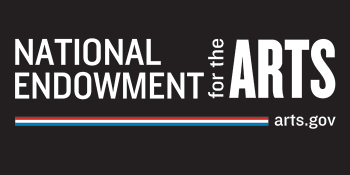“And it seems nobody is interested in learning, but the teacher.”-The Temptations, 1970
Dr. Bernard Taylor, Jr., superintendent of Grand Rapids Public Schools, and his administration continue to search for programs that will make education exciting, engaging and accessible for all students particularly at the high school level.
The “Centers of Innovation” and “Hub Elective” programs will celebrate their wholesale launch as schools resume for fall. There’s no question these new educational choices will attract the best and the brightest. The Grand Rapids Public School District already sports four Gates Millennium Scholarship Award winners from the class of 2010. But, that’s not exactly who Dr. Taylor is after.
Will these programs attract the marginal and disenfranchised student? Will they attract students with language barriers and learning disabilities? Will some kids who aren’t currently going to school get on the band wagon and show up, and will they make learning an active priority while they are there? Will the new, improved and expanded educational choices provide the stimulus to stick with high school and graduate on time? On this, the jury is still out, but Taylor hasn’t been afraid to roll up his sleeves, fasten on the shoe leather and hit the bricks to register students, neighborhood to neighborhood. Opportunity is knocking for the 21ST century GRPS student and it just might be the Superintendent of Grand Rapids Public Schools.
“It starts with dreams and big ideas.”
The “Centers of Innovation” program, a marriage of public and private know-how brings together the best of what the Grand Rapids entrepreneurial spirit has to offer. The “Centers” are theme specific, each theme designated to a particular school, each school partnered with local professionals and their organizations. The University Prep Academy (UPrep-college preparatory), the Academy for Design and Construction at Union High School, the GRAPCEP/Engineering and Biomedical School at Creston High School, the School of Business Leadership and Entrepreneurship at Ottawa Hills High School, and the School of Health, Science and Technology at Central High School round out the choices. Each center is career-college focused and available to enrolled students via application and acceptance.
The “Hub Elective” program like the “Centers of Innovation” program takes advantage of public-private partnerships being forged at designated centers. Students will be transported from their “base school” (regular GRPS school they attend) to the specialty “hub” three days a week for 90 minutes in the afternoon for instruction in their chosen electives. The Center for Design Technology and Visual arts at Union High School, the Center for Human Services at Central High School, the Center of Instrumental and Musical Expression at City High School, the Center for Leadership at Creston High School, and the Center of Theatre and Performing Arts at Ottawa Hills High School all will offer expanded elective choices based on that centers theme to all students.
Jenine Prus, a former GRPS student and first year employee as a Bilingual Paraprofessional at Central High School provides an interesting perspective on Grand Rapids Schools. Raised on the Southeast side, Prus attended Vandenburg Creative Arts Academy then City High School.
“My elementary school was special because the arts were very much integrated into our curriculum," Prus said. "I became interested in theatre at Vandenburg and was able to continue that passion into high school. At the time, City High had an extensive entrance process for interested students including a portfolio, personal interview, and volunteer hours. Needless to say, I was proud when I was accepted. I believe two years after I was accepted the entrance process changed. You still had to have the GPA, but they just put all qualified applicants in a lottery. It made entrance into the school so much less special.”
After receiving her college degree, a B.A. in International Studies with a minor in Spanish from Humboldt State University in Northern California, Prus made her way back to Grand Rapids.
“Honestly, I came back to Michigan because it was time to start paying my student loans and I needed help from my mom and dad to survive after nine months in Mexico," she said. "I never imagined working for GRPS.”
Able to leverage her bilingual ability, Prus landed the Paraprofessional job at Central High.
“Parapros generally work in one classroom with one or two teachers as an assistant. I worked with students who were recognized as having low or only basic English skills," Prus said. "I followed these students throughout the day, tutoring, translating or explaining to help them understand."
Jenine Prus is quick to furnish her disclaimer, the opinions expressed are hers and not those of GRPS, yet the more you talk to her the more you realize there is common ground. She recognizes the disconnect some children experience with education.
“The reason kids don’t go to school just depends on the situation,” Prus said. “A large number of kids aren’t raised in situations where school is a priority for them or their parents. They find other ways to spend their time and parents either don’t have the time or the desire to force them to attend. I think high school especially can be very boring for kids. The system we have in place does not support all styles of learning. It is especially hard for those students who have a hard time understanding; those with language barriers, and those with learning disabilities. Generally, there is one teacher for every 20-30 kids when probably students need more one on one explanation.” It’s that one on one that Prus delivers in her daily routine that can help to build self-confidence in students, a confidence necessary for them to aspire to Dr. Taylor’s ambitious new programs.
Prus enjoyed many small successes in the spring term.
“I saw marked improvement in almost all of my students by the end of the year,” she said. Not such a far cry from the impact she’d hoped to make with her college degree. “Mostly, I would enjoy being able to utilize my Spanish and travel while making small and positive changes in the world.” Two out three isn’t bad!
Prus felt the buzz around her students and school in June.
“Now that the high schools are becoming specialized I think students may be getting that excitement back again," she said. "If you are interested in a career in the medical field then you want to be accepted to Central instead of Ottawa Hills. It’s less about the neighborhood you want to be in and more about the curriculum.”
Dr. Taylor calls this shift “teacher-centered to learner-centered.” It's now time to see if it put more kids in chairs on a regular basis and motivate high school students to graduate on time.
The Rapidian, a program of the 501(c)3 nonprofit Community Media Center, relies on the community’s support to help cover the cost of training reporters and publishing content.
We need your help.
If each of our readers and content creators who values this community platform help support its creation and maintenance, The Rapidian can continue to educate and facilitate a conversation around issues for years to come.
Please support The Rapidian and make a contribution today.
Related Articles
Comments, like all content, are held to The Rapidian standards of civility and open identity as outlined in our Terms of Use and Values Statement. We reserve the right to remove any content that does not hold to these standards.

